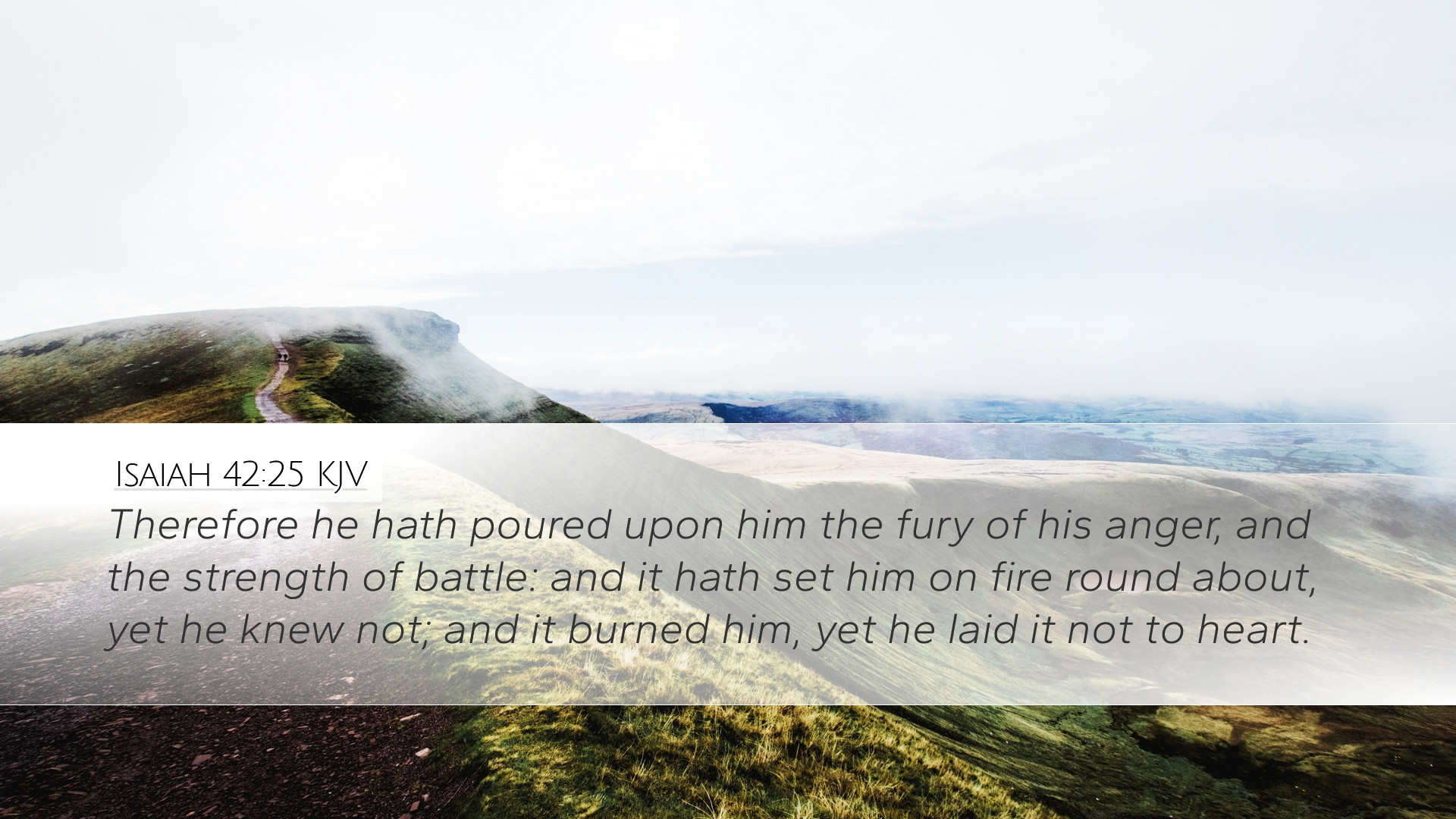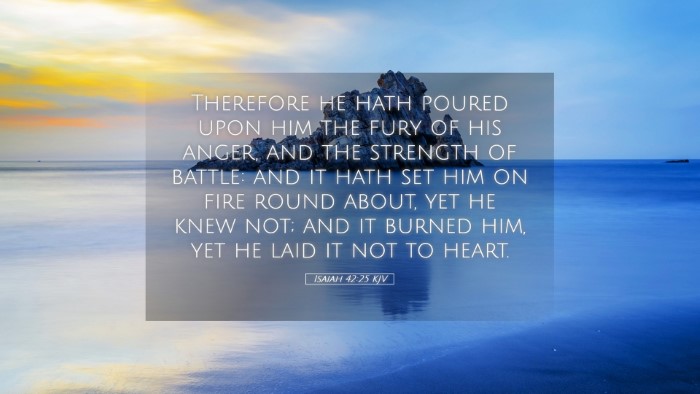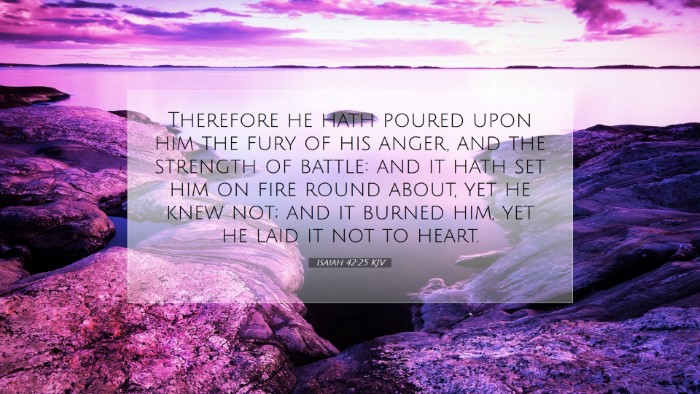Isaiah 42:25 Commentary
Verse: Isaiah 42:25
“Therefore he hath poured upon him the fury of his anger, and the strength of battle; and it hath set him on fire round about, yet he knew not; and it burned him, yet he laid it not to heart.”
Introduction
This passage of Isaiah offers deep insights into the nature of God’s anger and the consequences of sin. The prophetic lament reflects a critical theme in the book of Isaiah: divine judgment coupled with a call to awareness among God’s people. The complexity of the verse signals the disconnect between human awareness of divine action and the realities of spiritual blindness.
Contextual Analysis
Isaiah provides a unique perspective as a prophet during a turbulent period of Israel's history—marked by impending judgment and anticipation of restoration. The chapter speaks to God’s servant and the divine purpose of bringing justice to the nations. This verse characterizes the severity of God’s response to Israel’s rebellion and offers a sobering reminder of the consequences of forsaking the covenant.
Historical Background
The historical context of this verse can be traced to Israel's failure to heed the call for repentance and their continued idolatry. Matthew Henry notes that God’s anger was kindled not only due to the people’s sins but also their persistent indifference to divine warning.
Theological Insights
Several theological themes emerge from Isaiah 42:25 which are essential for understanding God’s nature:
- Wrath of God: The verse indicates a purposeful anger—a divine fury directed toward sin. Albert Barnes emphasizes that God’s wrath is holy, a response to the violation of His commandments.
- Spiritual Blindness: The phrase “yet he knew not” highlights the spiritual dullness that envelops the people. Adam Clarke elaborates on this concept, suggesting that the people’s lack of cognizance of their plight signifies a deeper spiritual malaise.
- Judgment and Mercy: While the inescapability of judgment is evident, the context reminds us of God’s overarching plan for mercy and restoration, as explored throughout Isaiah’s writings.
Interpretative Reflections
This verse invites personal reflection on the nature of God’s judgment and the human condition. It challenges both congregants and leaders in their spiritual walk.
Divine Judgment
Henry expounds on the idea that when God’s anger is kindled, it serves a purpose—to wake the sinner from apathy. Just as fire reveals and purifies, this judgment aims to correct and ultimately lead God’s people back to Himself.
Call to Awareness
“Yet he laid it not to heart” serves as an alarming reminder that divine intervention might go unrecognized. This phrase urges readers to spiritually awaken and to consider how they might be similarly indifferent to God’s workings in their lives.
Applications
For pastors, this verse serves as a poignant illustration of the responsibility to call their congregations to awareness of sin and spiritual reality. It is essential to frame God’s judgments within the context of His desire for repentance and restoration.
For Students and Theologians
Students and scholars are encouraged to delve deeper into the nuances of divine judgment and grace, promoting discourse on the relationship between God’s anger and His loving character. Investigating the balance between justice and mercy is crucial for theology students.
Practical Reflections for Everyday Life
This passage challenges each believer to examine personal spiritual health. It asks: Are we aware of our spiritual condition? Are we caught in the cycle of sin yet numb to its consequences?
Conclusion
Isaiah 42:25 serves as a powerful reminder of the serious nature of God's judgments while underscoring the call for awareness and repentance. Acknowledging the reality of spiritual blindness is critical as we navigate our faith journeys. Whether pastor, student, or scholar, the implications of this commentary should resonate deeply, fostering a commitment to spiritual vigilance and a responsive heart toward God’s leading.


